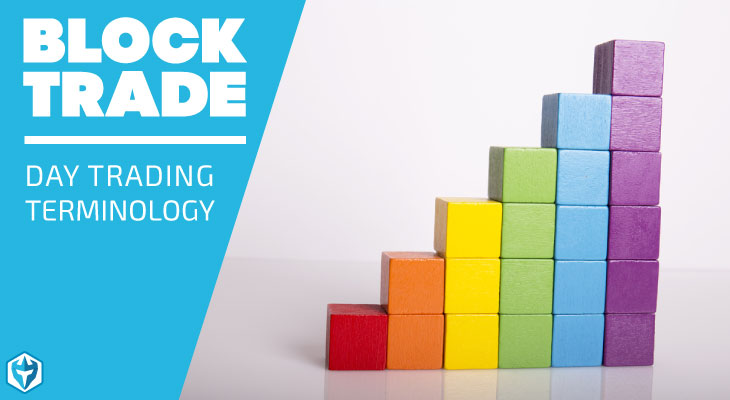A block trade or block order is a large order usually placed by a hedge fund or large institutional investor.
Mechanics of a Block Trade
While direct block trades between buyers and sellers do occasionally occur, most block trades take place using a specialist intermediary known as a block house.
The block house has traders on staff who have professional relationships with a variety of other traders and firms, which allows them to effectively disperse the block order among a number of final point counterparties without dramatically affecting the price of the exchange, at least not to the degree that would occur were the block trade to take place on the open market.
Block Trade Example
A hedge fund wants to sell 100,000 shares of company A at $50 per share. The hedge fund contacts the block house, who then agrees to the volume and price of the block trade. The block house contacts a variety of other firms, finally settling on 5 other hedge funds, each of which are willing to buy 20,000 shares of company A at $50 per share.
In practice there can be a difference between the price sought and the price agreed upon, and even different prices for different counter-parties depending on the volume of shares or their desire to trade.
Block houses also charge a fee for their services, which must factored into the transaction cost of any block trade.
Block Trades and Day Trading
Despite the best effort of block houses to mute the market impact of block trades, most block trades do still have a significant effect on the price action of the traded securities.
Even if a trade does not take place on the market, a block trade still represents a large volume of securities changing hands, which directly affects the portfolios of firms and traders who are potential market participants for that security.
In addition, the effect of block trades on market sentiment can be substantial, as block trades can be perceived as drastic market moves based on information that has yet to reach the rest of the market.
Therefore, block trades do often represent a trading opportunity for day traders, even if the block trade itself takes place outside the market.
Day traders can track block trades to anticipate whether they will have an effect on the price of a security or on the overall market sentiment toward that security, and then trade accordingly.
Final Thoughts
While most day traders will never need to perform a block trade themselves, it is important to understand block trades because they represent an opportunity to trade on the resulting price action in the market and to gather valuable insight on how market participants view that security.
Block trades take place for a reason, and being able to identify the driver or drivers for a block trade can give a day trader a valuable edge in subsequent trading.


